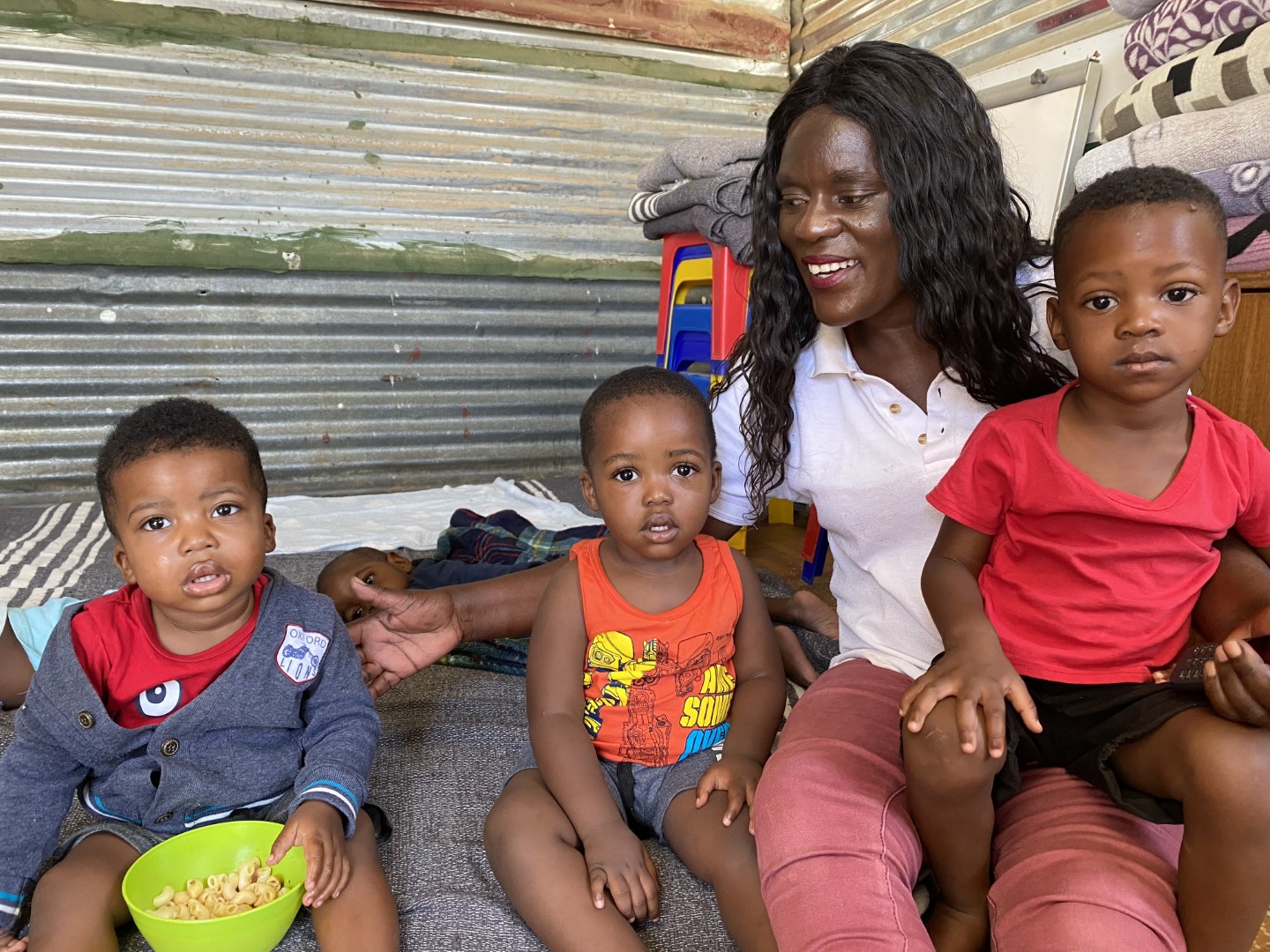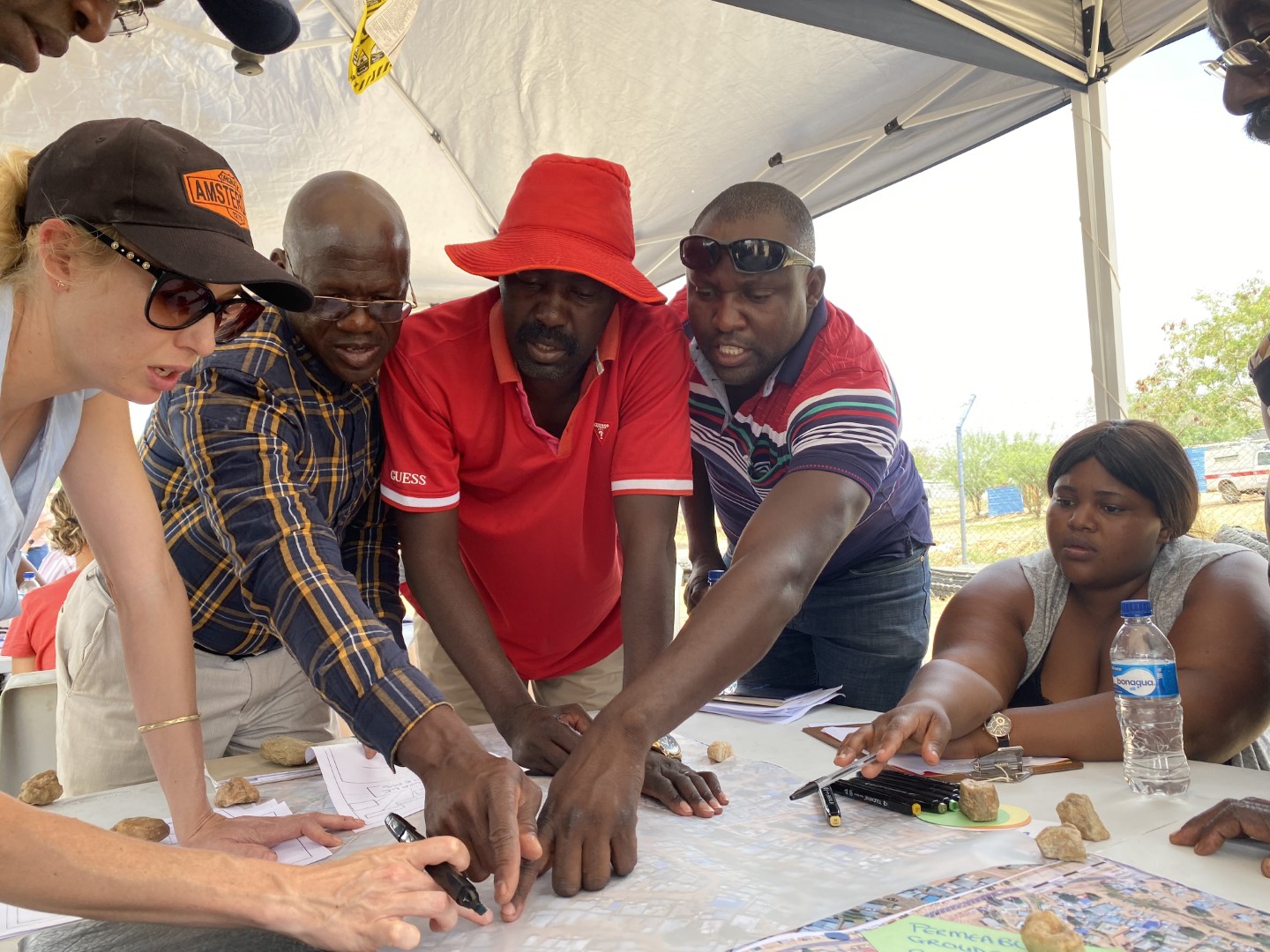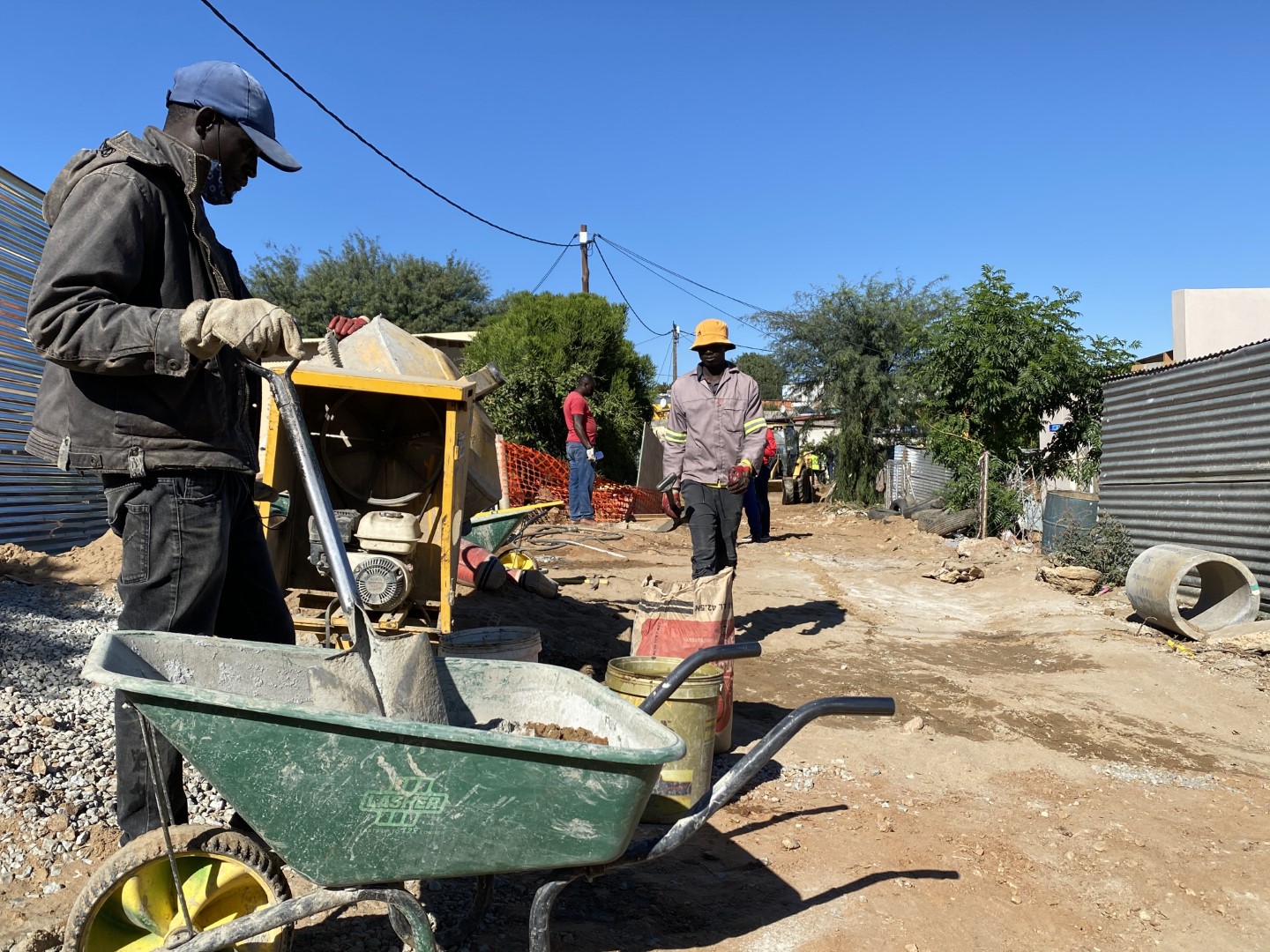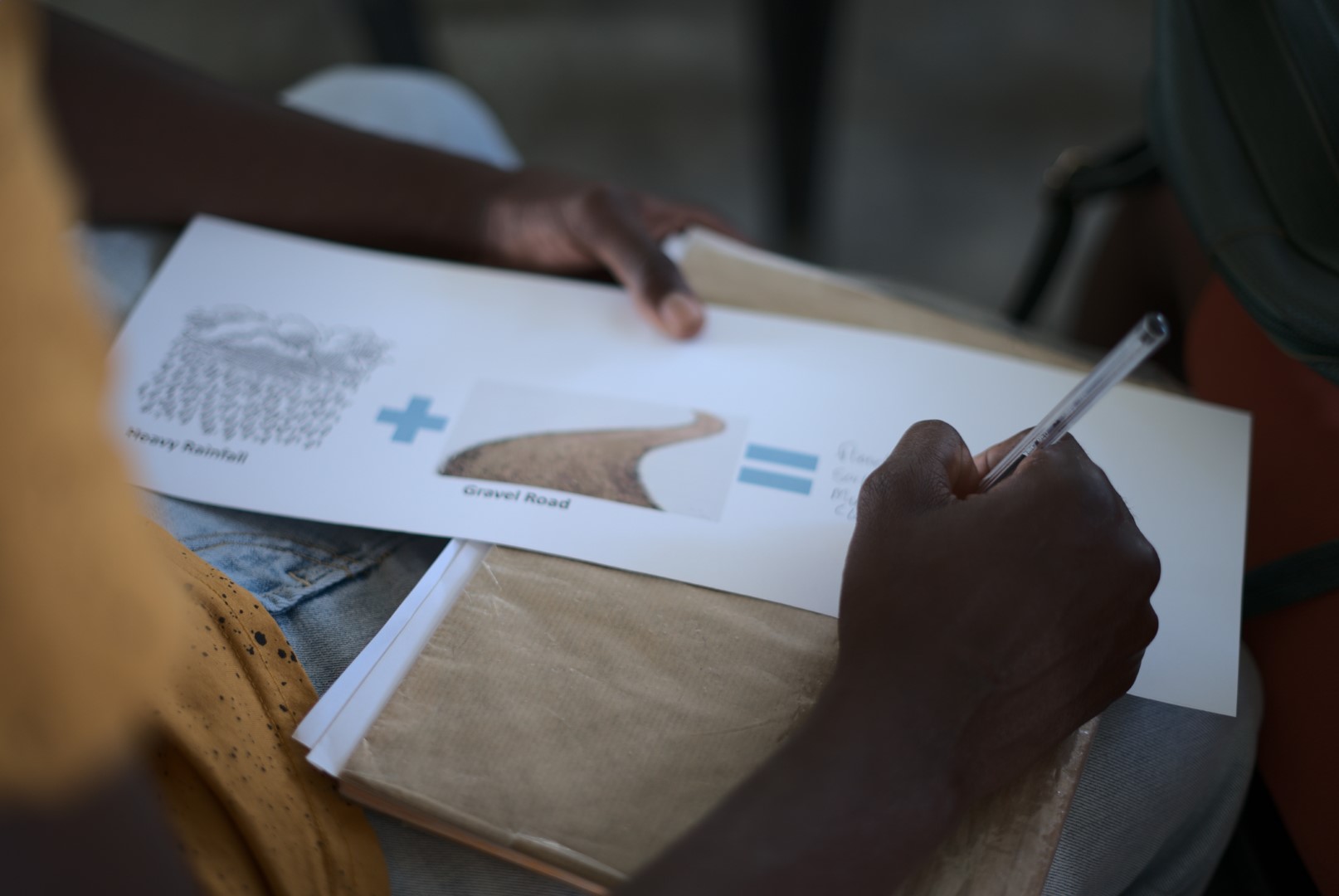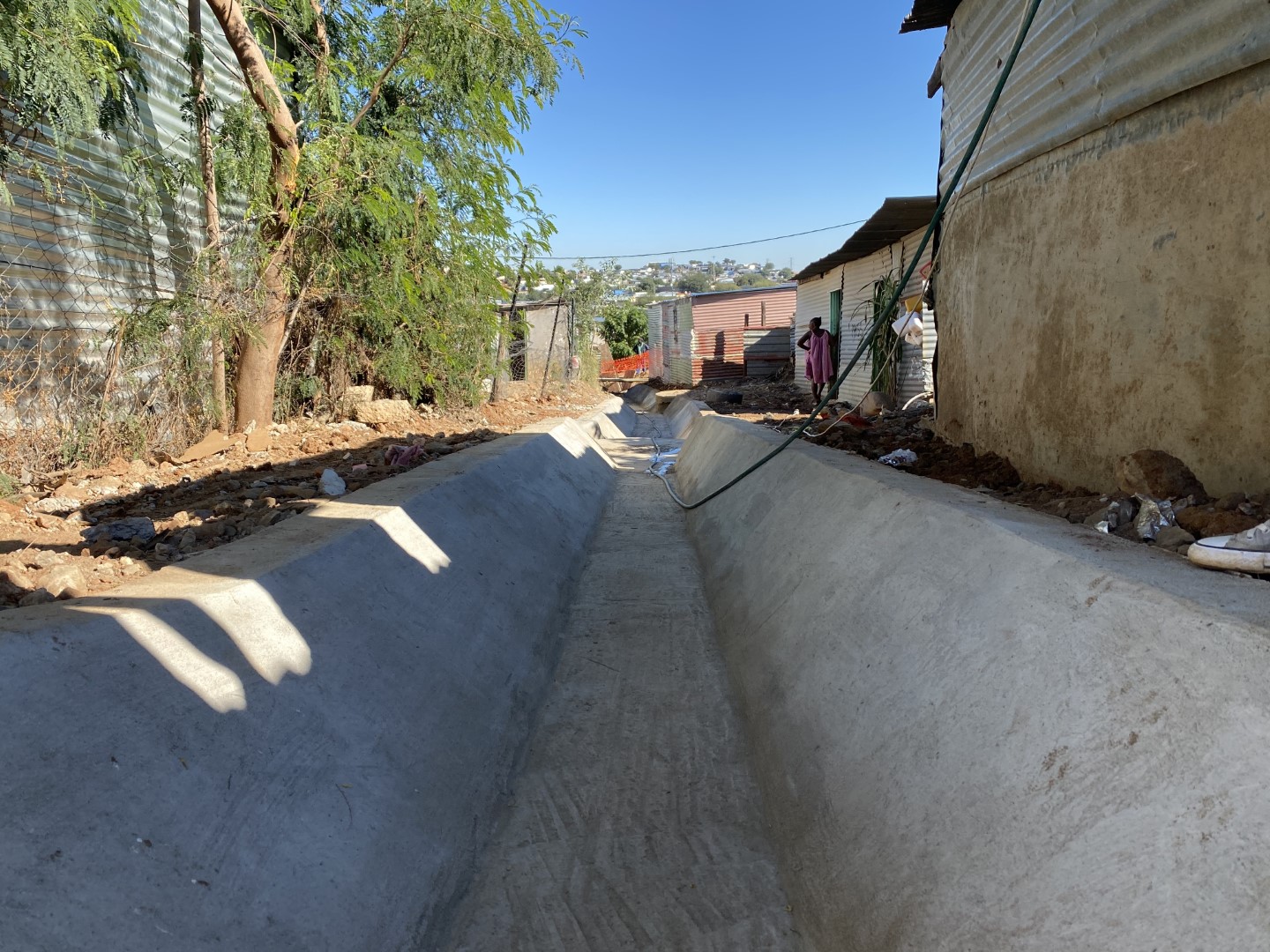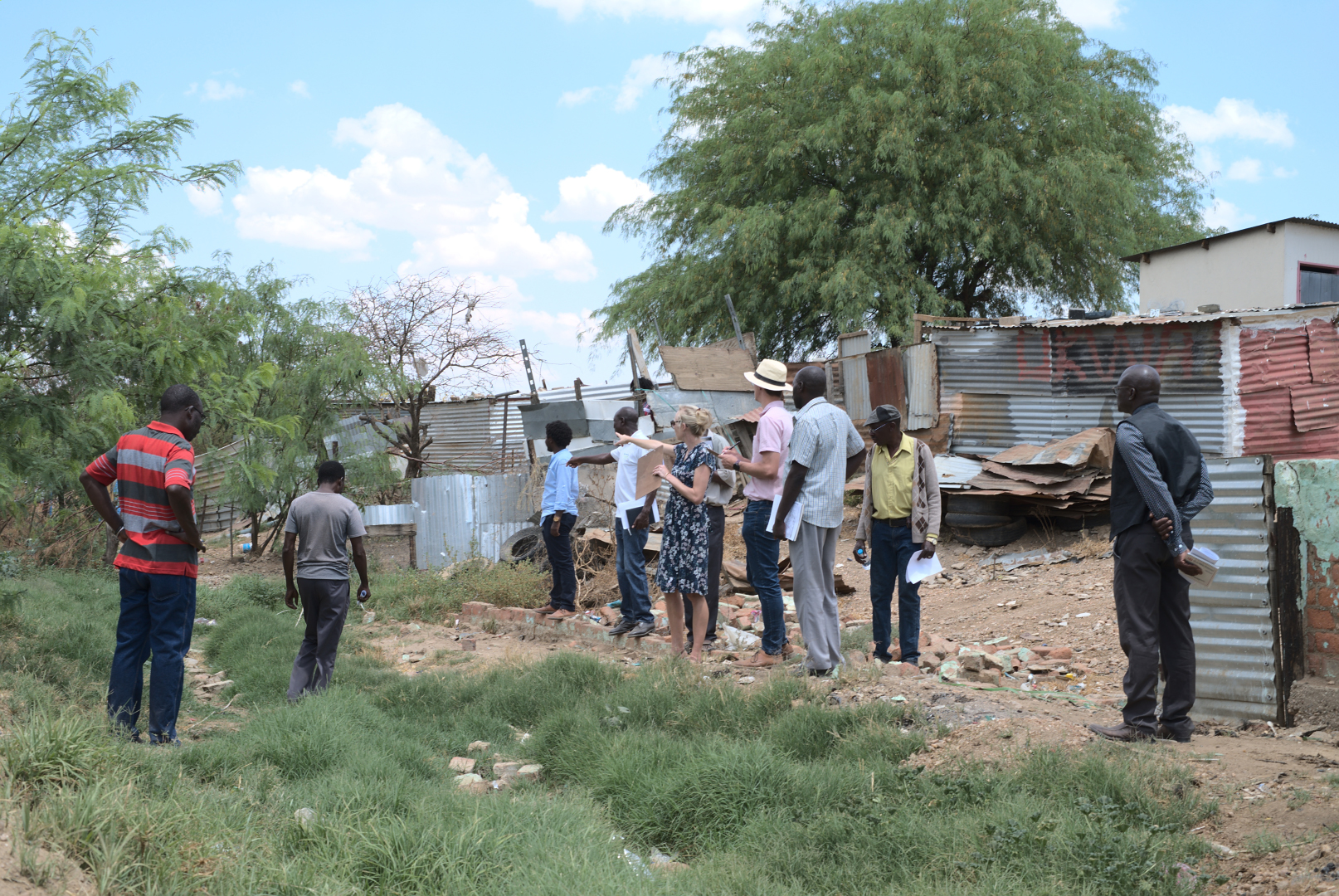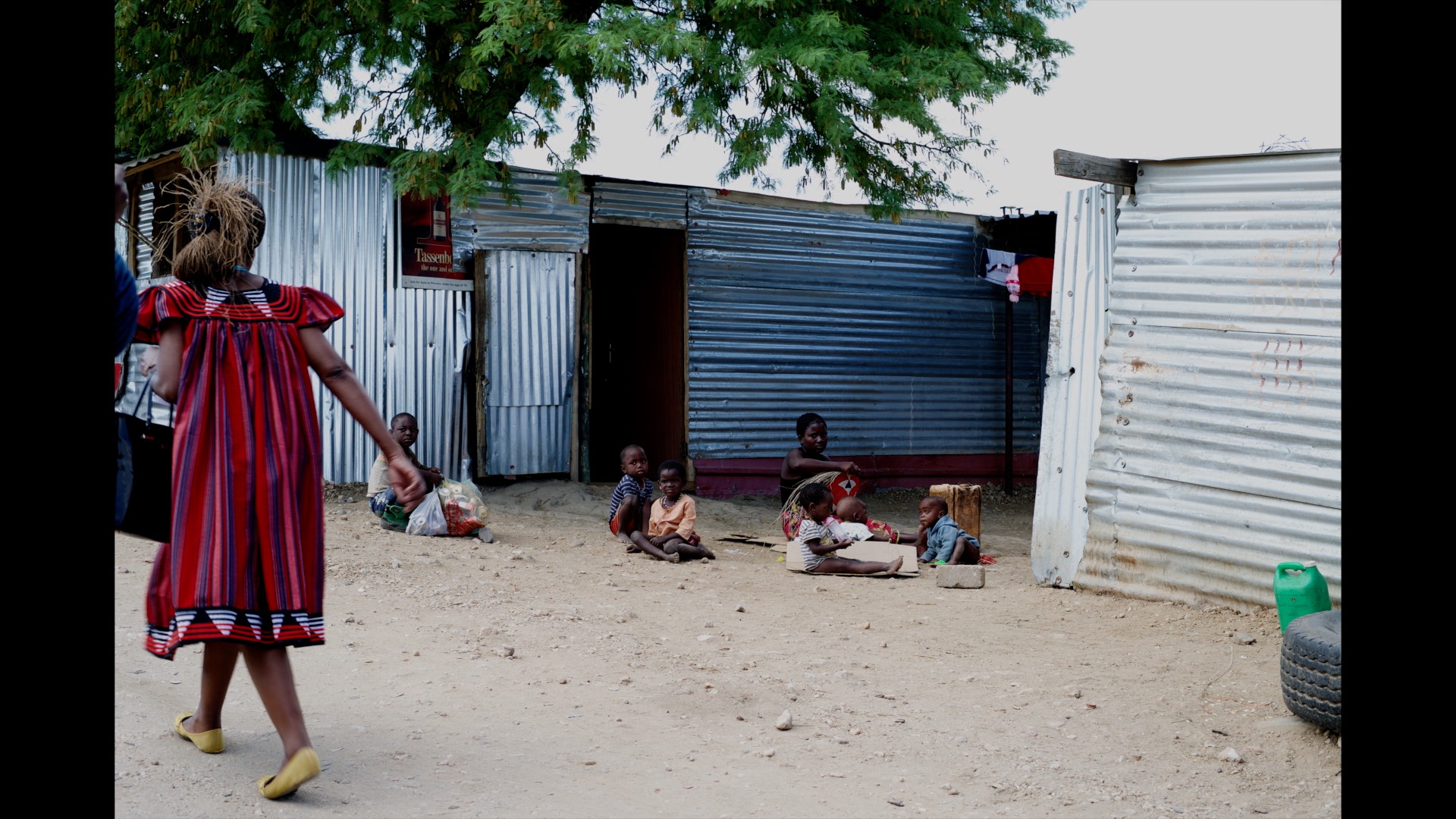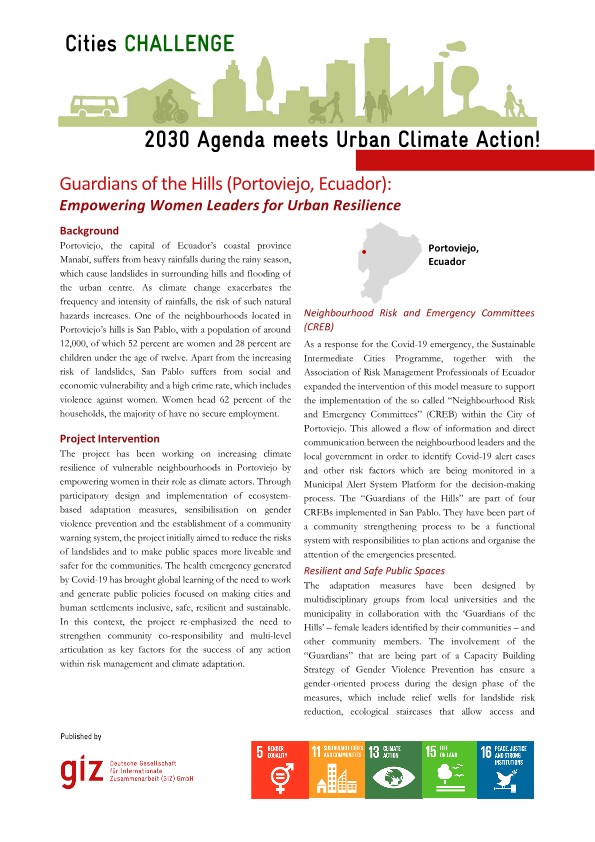Namibia
Climate-Sensitive Urban Development
Onyika No. 2, informal settlement in Windhoek, Namibia
The Urban Living Lab in Namibia belongs to the CitiesCHALLENGE 2030 (2019-2021). It implemented participatory and climate-sensitive planning in Onyika, an informal settlement in the outskirts of Namibia’s capital Windhoek. Together with the organised settlement community, it built a shared vision for the settlement to be legalised and to shape a concrete intervention that improves their living conditions and climate resilience. By implementing a participatory and climate-sensitive approach to planning, the Urban Living Lab worked jointly together with the local community on the further legalisation of the settlement and its upgrading.
For that reason, the Urban Living Lab builds on Namibia’s new Flexible Land Tenure System that has provided a base for a more resilient and integrated settlement development with a strong sense of ownership for its residents.
Learn more about climate-sensitive urban development in Windhoek, Namibia.
Facts
- WHO
- WHAT
- WHEN
- WHY
- GERMAN DEVELOPMENT & COOPERATION PARTNERS
- BUDGET
20 000 € by ISUD
Johanna Sheehama
Principal of a Pre-Primary & Day Care Centre in Onyika an informal settlement in Windhoek, Namibia
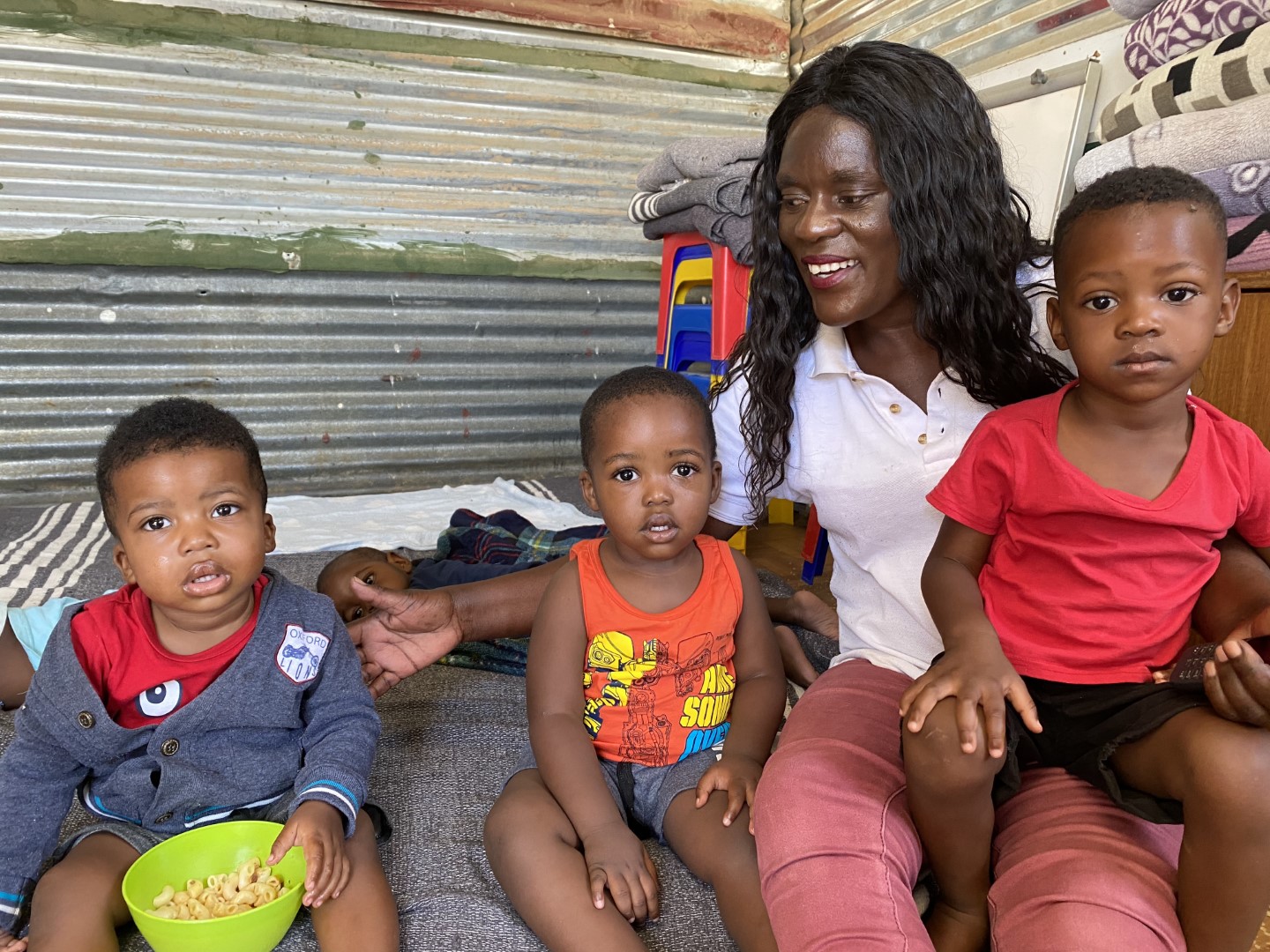
Johanna Sheehama: “One day Onyika will look like a real town.”
Creating a climate resilient community
In Onyika, an informal settlement on the outskirts of Windhoek, houses are huddled together along dusty and disorientating streets. The smell of human waste floats through the air, burning your eyes, which are most likely fixed to the ground to avoid stepping into streams of sewage and the waste that lies scattered, collecting in the dry riverbed and its surrounding drainage area.
Johanna Sheehama is the principal of the J. Sheehama Pre-Primary & Day Care Centre. She has lived in Onyika her entire life. Economic difficulties are evident as you step inside her school. One single room constitutes the whole day-care centre, built out of zinc sheets. The floors are simply covered with sand. Creatively and almost defiantly, she has made a bed for the children at her school out of various blankets – a corner of comfort where kids can rest snuggly despite their surroundings.
As the sun bakes down, Johanna proudly shows her few toys and learning materials. Every day, many children from around the community walk to Johanna’s school. The number fluctuates based on what is happening in the life of her community members – the informality of the surroundings translates to the informality of every-day life.
The City Administration has provided basic infrastructure for the residents in Onyika, however not all households are connected yet. Some of the houses on the outskirts of the settlement lack a permanent structures and sanitation or toilet facilities. Children are often seen climbing over piles of trash, braving the dry riverbed for a shrub or bush to use as a toilet. Besides the threats of criminals in the area, the real danger for children here is the health risk coming from their lavatories as they step over accumulated human waste baking in the sun. An additional hazard is the pollution of already limited water resources due to open solid waste and the lack of sanitation infrastructure. Removal of vegetation and degradation in and around informal settlements – when trees are cut down to make space for make-shift homes – has proven to be another problem, removing necessary shelter from heat in a warming climate.
Informal settlements such as Onyika are especially vulnerable to environmental hazards: they are squeezed in next to each other on the slopes of mountain sides. When the flash floods come, they do so with such force that they wash away people’s homes and their belongings, lost to the forces of nature. Even more distressing is that people often lose their children due to rapid and unannounced flash floods. ‘We are scared. Sometimes at the time of the flood, they get washed away with the flood. We’ve lost lots of children. The water is strong and moves fast,’ says Johanna.
She also highlights the dangers the floods bring in addition to the strong waters. ‘The dirty things come inside the house, the rubbish and all the (human) waste from the river,’ referring to the waste that accumulates in the riverbed due to the lack of access to proper sanitation facilities. When the flood waters come, this waste is washed into people’s homes, where piles of rubbish and human waste then cover the floor.
In the face of all these problems, the residents of Onyika have decided to act: Together with the Urban Living Lab, they embarked on a community-led process of creating a climate resilient community. In collaboration with donors, technical support organisations, climate change experts and the City of Windhoek, the community is working on a pilot project that provides climate-friendly solutions, aiming at improving life in this community.
A list of possible interventions was proposed by the community and integrated with the help of a landscape architect, an urban design specialist, a traffic engineer and a waste specialist. One key intervention is the construction of a bioswale system in order to create a water retention area that can filter contaminated water or greywater and convey stormwater runoff. Another intervention is the reorganisation of the community’s current waste collection system. In addition, the Urban Living Lab plans to rehabilitate and revive the riverbed edge along the kindergarten, for example by clearing debris from the area, constructing permeable walkways and establishing small gardens.
The community hopes that these interventions will become a case study and testing ground to roll out to other informal settlements all over the country. Even during the early stages of the project, the excitement in the community is evident: community members have taken action and begun to clear the rubbish from the streets in preparation for the coming development. This was inspired by a community workshop they attended, which informed on climate change, the dangers of pollution and the risk factors their community faces due to their flood-prone location, the large amounts of human waste, and the lack of vegetation in the area. When asked what she hopes to see in her community once these interventions take place, Johanna says: ‘One day Onyika will look like a town, not like it is now, but a real town, and this will make me so happy.’
Resource Hub
Factsheet Namibia
Download the CitiesCHALLENGE Factsheet from our Resource Hub!

